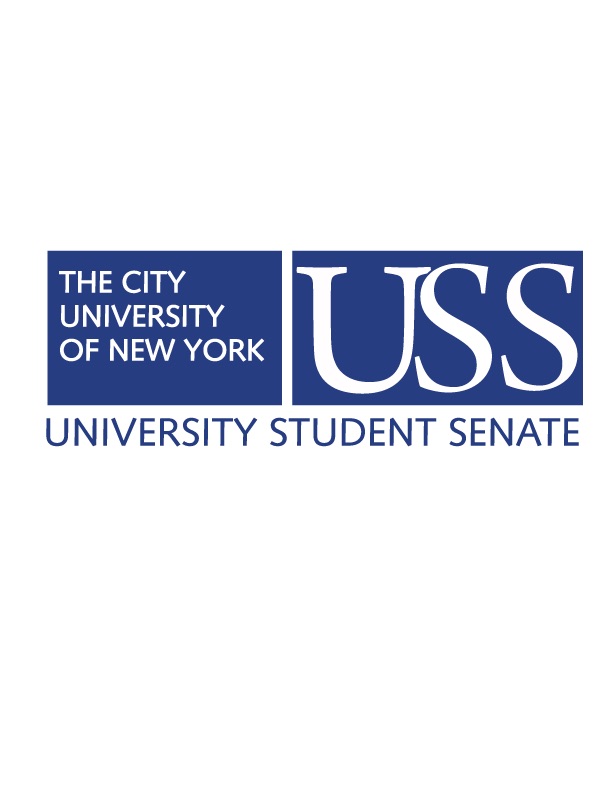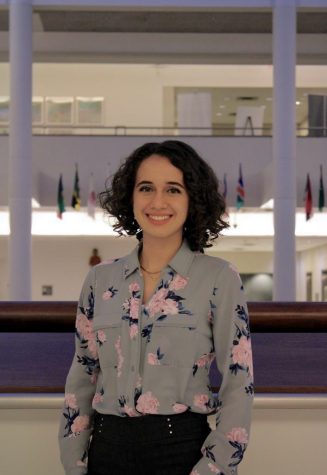USG impeachment trial exposes changes needed to improve the future of student leadership
June 25, 2021
Baruch College’s Undergraduate Student Government held an impeachment trial on April 20 when Borough of Manhattan Community College’s University Student Senate Delegate Brandee Simmons received insensitive messages from a former Baruch delegate.
The delegate, Joel De La Cruz, resigned midway through the trial. Despite this, Simmons says there is more work to be done within USS.
When asked by The Ticker if she thought USS’s environment was toxic for student leaders involved, Simmons disagreed. However, she said she has had interactions that were uncomfortable.
The most disheartening part of this situation, according to Simmons, is that USS has no protocol for protecting student leaders from this sort of behavior.
“I’ve had, you know, interactions that were very toxic, and knowing that there’s no protocol to deal with it, that in itself is toxic to me,” Simmons said. “The fact that in a school of about 70% Black and brown people, and then when one of our own is spoken to with racist, sexist undertones in a work setting, we should have something to deal with that.”
Vice Chair of International Student Affairs Vanella Douglas, who was one of Simmons’s witnesses during the trial, said she believes that the toxicity was exacerbated when USS’s activities became virtual last year.
“People never really used to show their true colors until you’re protected behind a computer screen,” she said. “That’s when everything came out and everybody just got brave with what they’re saying.”
To Simmons, USS is supposed to be a safe space for student leaders, especially for people of color.
“We can see the world we’re [women of color] getting prepped for … we’re getting prepped to take this abuse, and just roll with the punches,” Simmons said. “When we get one space where we can come together … where so many people of different ethnicities, backgrounds and cultures can come together and really make some great change, I’m not going to uphold the same rules that will put us in place to disable us in the first place. When I found out there was no USS protocol to deal with [the inappropriate behavior], that was an issue for me, especially being a leader in this space, when so many students come to us looking for us to be their voice and to protect them.”
Simmons told The Ticker that she believed USS’s “validity as student leaders would have gone right out the window” if she didn’t make an effort to address the lack of protocol within USS.
“I can imagine so many other students who may have faced things like this, whether it was from a professor or another student, or whatever, who had a really hard time seeing some kind of resolution and justice with that problem … it’s super hard to prove misogyny, but that’s the culture we live in, right?” she said.
Despite the lack of steps from USS to address the situation between her and De La Cruz, Simmons found comfort in Baruch USG’s decision to hold an impeachment trial.
“That should be the leadership that should be blanketed across the board,” she said about Baruch’s USG.
The trial provided a space to address De La Cruz’s messages to Simmons, and characterized the behavior as inappropriate and unacceptable.
“The comments made by Joel De La Cruz are not representative of Baruch College, nor the Undergraduate Student Government that was elected by their diverse student body,” Chair of Philanthropy Osvaldo Garcia said during the impeachment trial.
De La Cruz sent his letter of resignation halfway through Simmons’ testimony. The trial was then adjourned, and her testimony was cut short.
“I felt like a lot of other people felt like that was a sort of silencing, because I was in the middle of my testimony, and he had ample time,” she said. “In the middle of my impeachment trial, when I had to relive that once again and, you know, really explain the situation. That’s when he decided to, you know, drop his resignation letter.”
Cruz did not break any rules in the USG Constitution by his action. However, several USG members expressed a desire to not allow such an event to happen again in the future.
“I don’t know how it works going forward on amending the constitution but as a team, is there something we can do to prevent someone from resigning in the middle of their impeachment trial?” Vice President of Campus Affairs Julia Di Marcello said after the trial. “I think that was just ridiculous in my opinion and we should do something about it.”
In response to an inquiry about adding new rules by Rep. Sen. Matthew Sanchez, Director of Student Life Damali Smith Tolson said that amendments to the constitution must go through a referendum.
It is up to the USG that will serve during the 2021-2022 academic year to conduct such a referendum.
Simmons said she believes that student leaders have an obligation to protect the voices of minorities.
“These white ideologies creep into this space because they’re everywhere else,” she said. “The one space that we have, we’re gonna’ keep it to protect Black and brown people and to protect thoughts and critical thinking, and for us to become better humans who are involved for the future. Like that’s what this space is about. When I’m a leader, that’s what I can pledge, right?”
Douglas emphasized the importance of continuing the conversation and keeping the momentum alive beyond the 2020-2021 school year.
“It starts with coming forward,” she said. “It’s up to USS and it’s up to the team and whoever comes in after us … the thing is I don’t want this issue to fall. We raised it, we shined a spotlight on the toxicity and racism in USS, within student leadership. I don’t want the next steering or plenary to come in and it just dies, and nobody takes it seriously anymore.”
USS plenary and steering committee members will soon attend a one-day retreat, which they hold every year, featuring workshops on uncomfortable topics such as sexual and racial discrimination.
Douglas said she hopes that the retreat will breed cordiality, remorse and a desire to change.
“I don’t believe a conversation alone is going to solve this, it’s going to take years of work,” she said. “I just hope this is the beginning. After we have our retreat, people can see where they erred or people can see like ‘okay, this isn’t the way of thinking, things are changing, and we need to change as well.’”
The retreat will be held this summer, most likely in person at one of the CUNY campuses.
Another step Douglas said she thinks should be taken is to reconsider CUNY’s Title IX policy to address issues surrounding race.
“We need to work on revamping our Title IX,” she said. “People talk about sexual assault, but nobody talks about racism within CUNY and student leadership, but it’s there.”
According to her, there should be the opportunity to report acts of racism like there is for sexual misconduct.
Looking toward the future, there are calls to implement protocols for addressing prejudice within the world of student leadership.
“I’m all about trying to make this world better and, you know, more equitable, and just more full of love and decency,” Simmons said. “That’s what I stand for. Always stand for the little man.”
Additional reporting by Anacaona Rodriguez.








